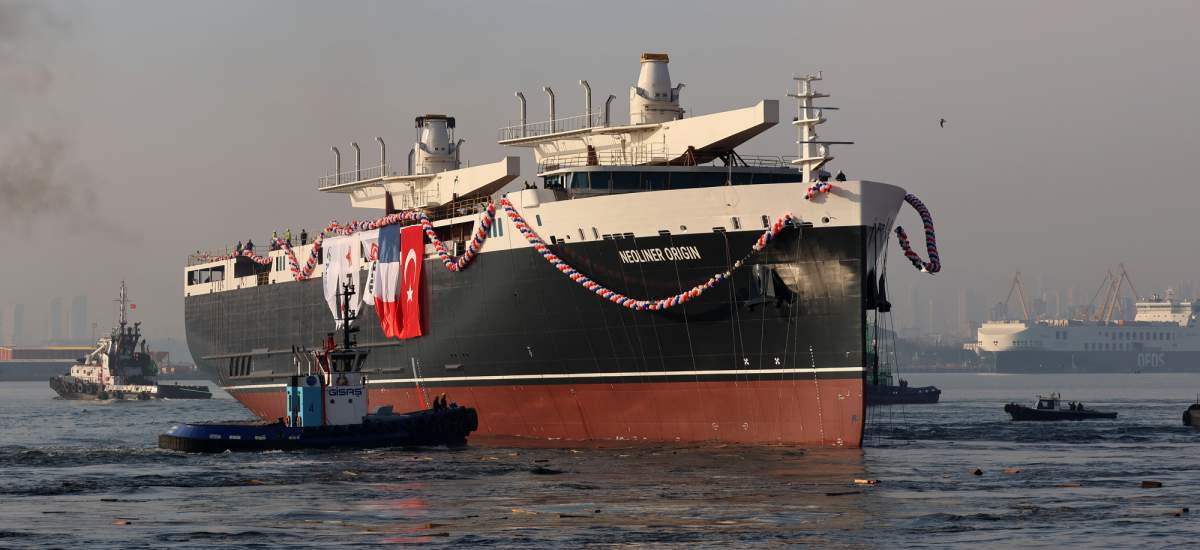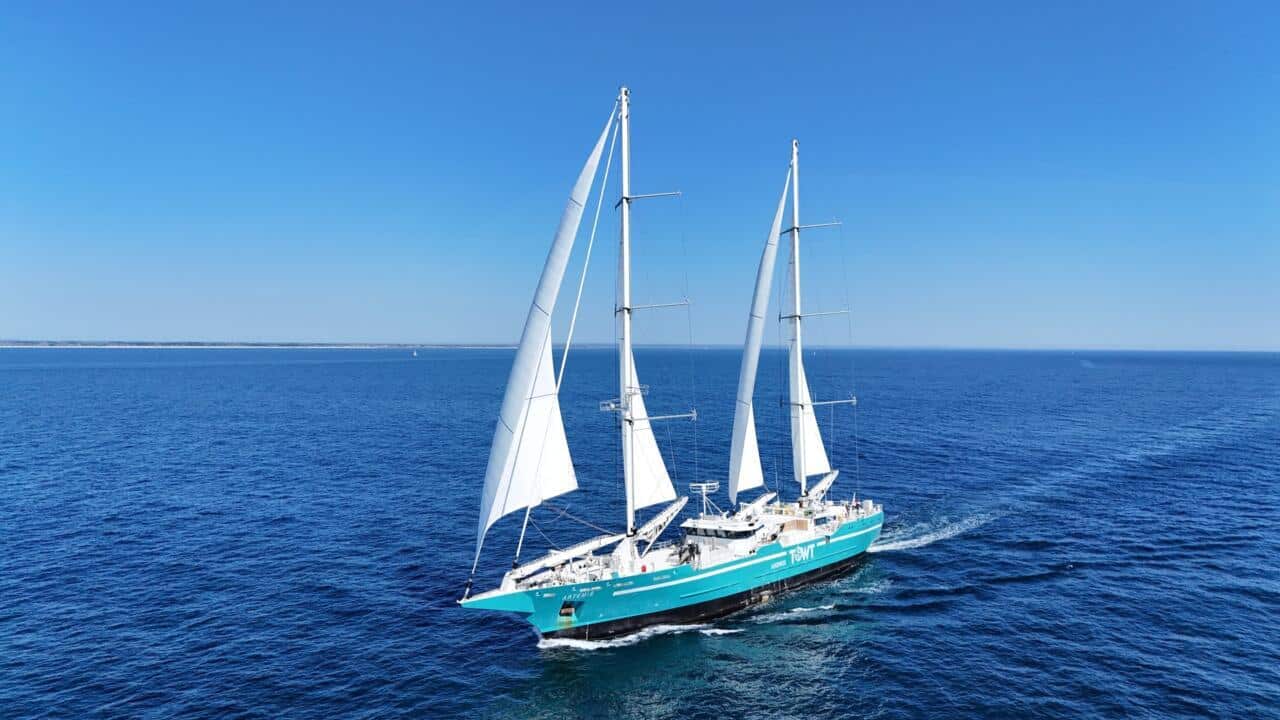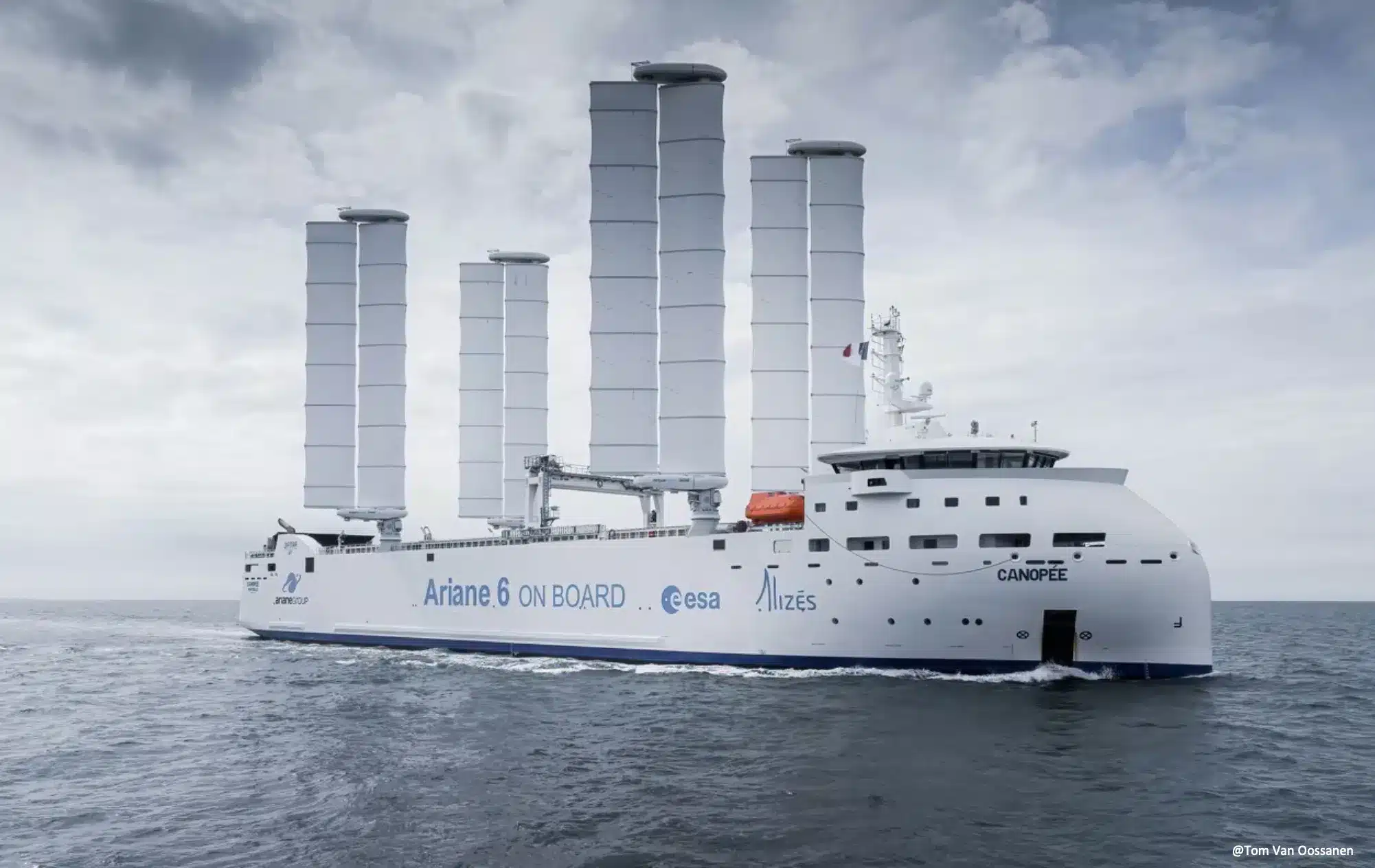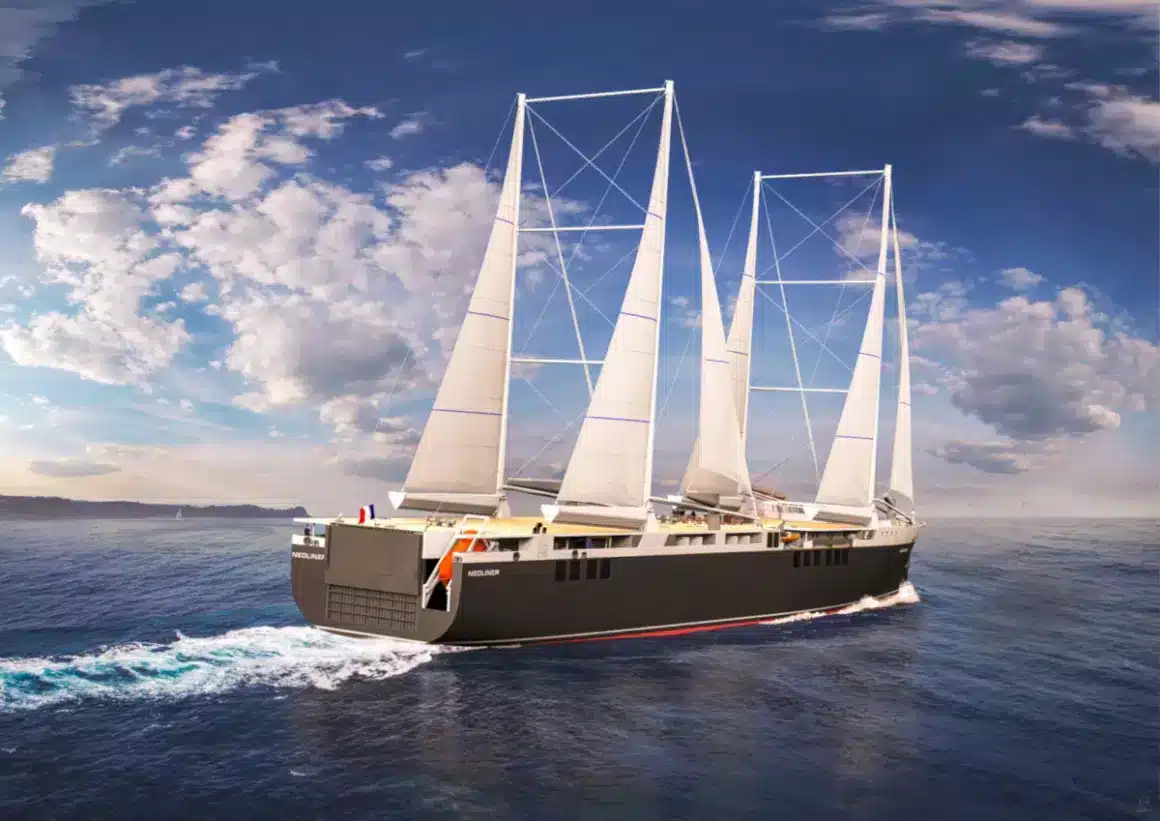SxSW 2025: The French Expertise Driving Zero Carbon Commerce
FACC is dedicated to shaping the future of commerce and its impact. As part of this mission, with our members Ceva Logistics & Honeywell, we brought the conversation on wind-powered cargo ships to SXSW 2025, highlighting a breakthrough in sustainable trade.
French companies are at the forefront of wind-powered cargo, leading the shift toward low-carbon transatlantic shipping. Laurent Corbel (NeoLine), Pierre Dufour (Honeywell), and Philippe Faria (Ceva Logistics) joined Constance Bost (FACC) to showcase how technology and sailing can redefine global logistics.
In the face of climate change, industries around the world are looking for ways to drastically reduce their environmental footprint. The shipping industry, known for being a significant contributor to global carbon emissions, is now embracing innovative solutions to lead the way toward sustainability. In Summer 2025, a monumental milestone will be reached with the launch of the largest wind-powered cargo ship, a transatlantic shipping line connecting Europe and the USA, powered by cutting-edge technology and traditional wind propulsion.
At the forefront of this revolutionary project is French innovation, with companies like Neoline, Towt, and OceanWings taking the lead. These pioneering companies are combining their expertise to significantly reduce the carbon footprint of global maritime trade. By harnessing the power of wind alongside state-of-the-art technologies, these teams are setting a new standard for sustainable shipping.

French Innovation in Sustainable Shipping
France has long been a leader in innovation and sustainability within the maritime industry. With a deep history of both maritime exploration and environmental awareness, French companies have been instrumental in developing green shipping solutions that are both practical and scalable. The collaboration between startups and established corporations has become a model for international efforts in sustainable global commerce.
Three French companies in particular — Neoline, Towt, and OceanWings — are at the heart of this groundbreaking project.
Neoline: A pioneer in the field of wind-powered shipping, Neoline is developing a hybrid propulsion system that integrates traditional sail technology with modern solutions. Their approach involves using rotor sails and rigid sails to capture wind energy, significantly reducing the need for conventional fuel. Neoline’s vision is to create a low-carbon shipping line between Europe and the U.S., offering both cost-effective and sustainable alternatives for transporting goods across the Atlantic.

Towt: Towt (Transport à la Voile), a French company specializing in wind-assisted shipping, has been working on innovative solutions to reduce the environmental impact of maritime transport. Their work involves a multi-faceted approach that combines wind power with modern technologies like electric motors and energy-efficient hull designs. Towt is focused on creating a sustainable trade route that aligns with France’s commitment to reducing its carbon emissions, providing a green alternative to traditional shipping methods.

OceanWings: With its revolutionary sail technology, OceanWings is leading the charge in the development of wing-sails that can propel cargo ships using wind power. The company’s OceanWings sail system is designed to increase the ship’s energy efficiency by harnessing the wind more effectively than traditional sails. This technology is integral to the success of the transatlantic zero-carbon shipping line and will play a pivotal role in reducing the carbon emissions associated with shipping

The Zero-Carbon Transatlantic Shipping Line
The collaboration between Neoline, Towt, and OceanWings aims to create a zero-carbon transatlantic shipping line that will connect Europe and the USA. The ships will be equipped with a hybrid propulsion system, combining the power of wind with electric engines, making them less reliant on fossil fuels.
These ships will drastically reduce the carbon emissions associated with traditional cargo ships. By using wind energy for propulsion, these vessels will rely less on heavy fuel oil, making the journey across the Atlantic significantly more eco-friendly. This ambitious project is a prime example of how innovative startups, multinational corporations, and logistics companies can collaborate to drive real change in the fight against climate change.
Challenges and Innovations in Sustainable Maritime Transport
While the potential of wind-powered cargo ships is enormous, there are challenges that need to be addressed. For one, wind conditions can be unpredictable, which could affect the reliability and speed of the ships. However, companies like Neoline and Towt are already incorporating advanced sail technologies and energy storage systems to mitigate these challenges. The goal is to ensure that even on days when wind conditions are less favorable, the ships can still operate efficiently with minimal use of fossil fuels.
Additionally, the cost of retrofitting existing vessels with wind propulsion systems, and the development of new infrastructure for these ships, remains a hurdle. But the collaboration between French innovators and established logistics companies demonstrates that sustainable practices can be both financially viable and environmentally effective.
A Collaborative Effort Driving a Green Future
This project is a shining example of the power of collaboration. French companies like Neoline, Towt, and OceanWings are leading the charge in sustainable maritime transport, and their efforts are helping to shape the future of global trade. By combining traditional sailing techniques with cutting-edge technologies, these companies are showing the world that a low-carbon, eco-friendly shipping industry is not only possible, but also essential for the future.
The zero-carbon transatlantic shipping line will not only help reduce global carbon emissions but will also pave the way for a new generation of green trade routes that can support the global economy without further damaging the planet. This innovative project proves that with the right combination of technology, expertise, and collaboration, industries can evolve toward a more sustainable future.
With Summer 2025 on the horizon, the launch of the largest wind-powered cargo ship is just the beginning of a revolution in how goods are transported across the globe. The French expertise driving this change, with companies like Neoline, Towt, and OceanWings, will undoubtedly inspire further innovation and sustainable practices across all sectors of global commerce.
The introduction of wind-powered cargo ships marks a significant leap toward a more sustainable global shipping industry. The French expertise from Neoline, Towt, and OceanWings plays a crucial role in shaping this transition. As the shipping industry works to drastically reduce its carbon footprint, the combination of innovative technology and traditional sailing could provide the blueprint for a cleaner, greener future in global trade.
Stay tuned for Summer 2025, when this groundbreaking zero-carbon transatlantic shipping line is set to launch, marking the beginning of a new era in sustainable maritime transport.


